What Is Fractional Ownership?
Fractional ownership is a structure where multiple individuals share ownership of a high-value asset, such as a vacation home, private jet, or luxury car. In real estate, it means that a group of people each buy a portion of a property, allowing them to enjoy the benefits of ownership without the full financial burden.
Each co-owner holds a share—often between 1/8 and 1/4—of the property and shares the benefits proportionally. These include access to the home, potential rental income, and responsibility for expenses like maintenance and taxes. Most arrangements also allow owners to transfer their interest, sometimes even as part of their estate.
How Fractional Ownership Works
When you invest in fractional ownership of a vacation home, you’re typically buying a share of the property through a legal structure—often an LLC. This entitles you to use the home during a set number of weeks each year. Usage is managed by a property management company that handles scheduling, cleaning, maintenance, and other logistics.
You don’t have to use all your time personally, either. Some owners let friends or family enjoy the home, while others rent out their unused time for income. If the home is rented out when not in use by owners, the revenue is shared based on the percentage of ownership.
Property managers play a big role. They not only maintain the home but often provide access to a network of other fractionally owned properties around the world. This means owners can sometimes trade time at their home for stays in other locations.
The Advantages of Fractional Ownership
Fractional ownership offers a number of appealing benefits, particularly for buyers who want a second home but won’t use it full-time.
- Affordability: You only pay for the portion of the home you’ll actually use, making high-end properties far more affordable.
- Reduced Maintenance Burden: Costs for upkeep, repairs, taxes, and management are divided among co-owners.
- Luxury Access: You can enjoy premium finishes, desirable locations, and professionally maintained homes at a fraction of the usual cost.
- Investment Potential: In some cases, owners earn income from renting out their share of the property.
- Legacy Ownership: Your fractional share can be included in your estate and passed to heirs.
The Drawbacks to Consider
Fractional ownership isn’t perfect. There are limitations and risks that potential buyers should understand.
- Resale Challenges: Selling your share can be tricky. Buyers may be hesitant to co-own with strangers, and existing owners might have restrictions or veto power.
- Limited Flexibility: Usage schedules are planned in advance, and last-minute changes may not be possible.
- Financing Difficulties: Traditional mortgages are rare for fractional properties. Buyers may need to pay cash or find specialized lenders.
- Shared Decision-Making: All owners typically have a say in decisions, which can lead to disagreements or delays.
In essence, fractional ownership requires you to be comfortable with the idea of sharing your home and decisions with others.
How Is It Different from a Timeshare?
Though they may sound similar, fractional ownership and timeshares are quite different. Timeshares typically divide use into one-week increments with up to 52 owners per unit. Owners don’t hold any real equity—just the right to use the property for a certain time.
With fractional ownership, you actually own a share of the property. There are fewer owners, longer stays, and a stronger sense of pride and connection. Fractional homes are also often higher-end and better maintained.
Additionally, timeshares are often run by hotel companies, and owners have little to no say in operations. Fractional ownership gives you more control, both financially and personally.
Is Fractional Ownership Right for You?
Fractional ownership is ideal for people who want the benefits of a luxury vacation home without the full expense and hassle. It’s also great for those who don’t plan to use the home year-round but still want to invest in real estate.
However, if you value full control, flexibility, or plan to live in your second home for extended periods, full ownership might be a better fit.








